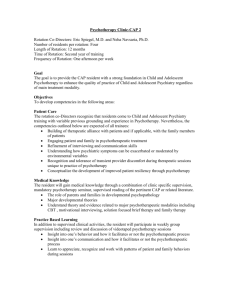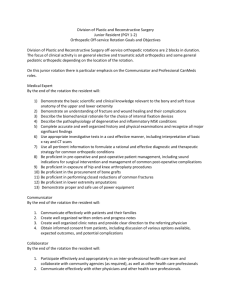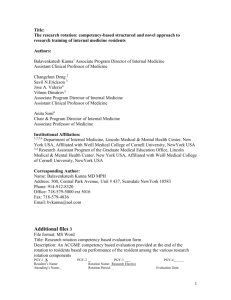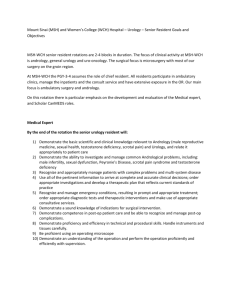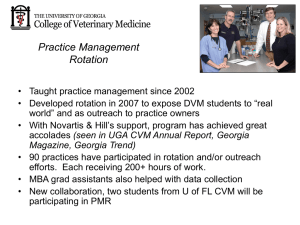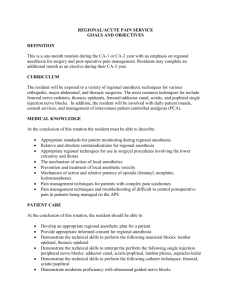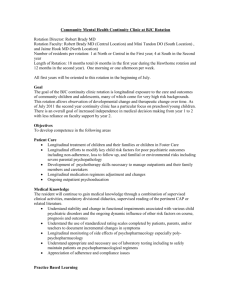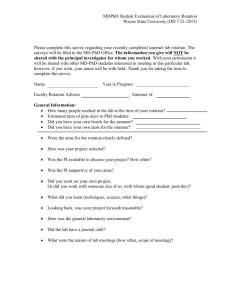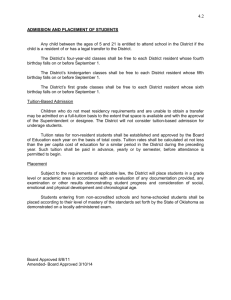Group-goals-and-objectives 2014
advertisement
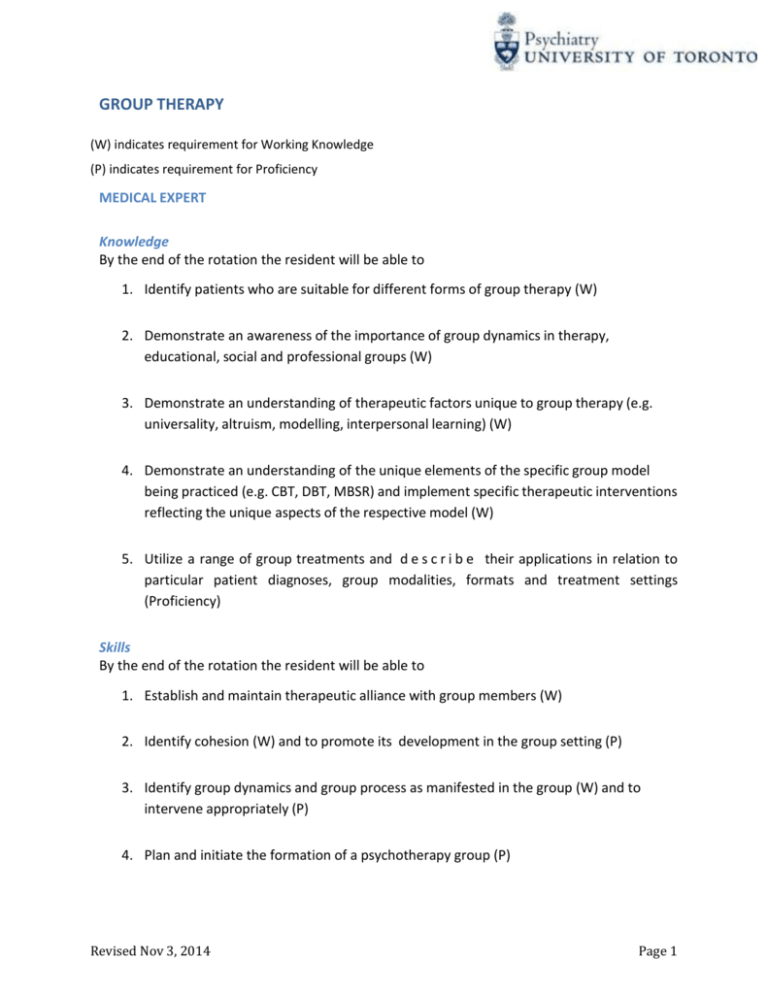
GROUP THERAPY (W) indicates requirement for Working Knowledge (P) indicates requirement for Proficiency MEDICAL EXPERT Knowledge By the end of the rotation the resident will be able to 1. Identify patients who are suitable for different forms of group therapy (W) 2. Demonstrate an awareness of the importance of group dynamics in therapy, educational, social and professional groups (W) 3. Demonstrate an understanding of therapeutic factors unique to group therapy (e.g. universality, altruism, modelling, interpersonal learning) (W) 4. Demonstrate an understanding of the unique elements of the specific group model being practiced (e.g. CBT, DBT, MBSR) and implement specific therapeutic interventions reflecting the unique aspects of the respective model (W) 5. Utilize a range of group treatments and d e s c r i b e their applications in relation to particular patient diagnoses, group modalities, formats and treatment settings (Proficiency) Skills By the end of the rotation the resident will be able to 1. Establish and maintain therapeutic alliance with group members (W) 2. Identify cohesion (W) and to promote its development in the group setting (P) 3. Identify group dynamics and group process as manifested in the group (W) and to intervene appropriately (P) 4. Plan and initiate the formation of a psychotherapy group (P) Revised Nov 3, 2014 Page 1 5. Prepare group members for termination (P) 6. Manage interpersonal conflict and premature termination in the group setting (P) 7. Make a choice point analysis regarding levels of intervention in the group setting (individual, interpersonal, group as a whole) (P) 8. Utilize group therapeutic factors for therapeutic benefit (P) 9. Intervene differentially at different group developmental stages (P) 10. Address individual psychopathology manifested in the group (P) 11. Work effectively with a range of group treatments and utilize their applications in relation to particular patient diagnoses, group modalities, formats and treatment settings (P) COMMUNICATOR By the end of the rotation the resident will be able to 1. Document in a is timely way, with accurate summaries of group themes with specific comments on each member’s response to the group (W) 2. Summarize group process, group themes and interactions in the group during supervision (W) 3. Reflect upon and discuss countertransference to the various elements of group (W) 4. Describe one’s role and impact as therapist in the group (W) 5. Utilize therapeutic transparency appropriately for therapeutic benefit (P) 6. Work in the here-and-now and make appropriate links to patient’s past and to the clinical formulation (P) Revised Nov 3, 2014 Page 2 COLLABORATOR By the end of the rotation the resident will be able to 1. Work effectively and collaboratively with the co-therapist, supervisor and other treatment providers in the circle of care (W/P) 2. Resolve differences constructively at all levels (P) 3. Work effectively in both a conjoint (different therapist providing group and individual treatment) and combined (same therapist for both) treatment arrangement (P) MANAGER By the end of the rotation the resident will be able to 1. Identify and address practical issues regarding norm and frame of treatment (W) 2. Demonstrate an understanding and apply, for therapeutic benefit, the various leadership functions of a group therapist (executive functions, caring, emotional stimulation, meaning attribution, establishing group norms) (P) HEALTH ADVOCATE By the end of the rotation the resident will be able to 1. Demonstrate an appreciation of the role of group therapy in contemporary mental health care (W) and articulates this clearly to colleagues and patients (P) SCHOLAR By the end of the rotation the resident will be able to 1. Demonstrate an appreciation of the empirical underpinnings of group psychotherapy (W) and applies and integrates this knowledge into the group work (P) 2. Evaluate the process and outcome of treatment (including quantitative measurements) (P) PROFESSIONAL By the end of the rotation the resident will be able to 1. Demonstrate consistency and reliability across all aspects of group practice (including Revised Nov 3, 2014 Page 3 pre and post group debriefing, co-therapy, supervision) (W) 2. Demonstrate a strong commitment to patient care (W) 3. Identify ethical dilemmas specific to group setting (e.g. limits of confidentiality and privacy, subgrouping, focus on group versus individual) (W) and demonstrate an ability to resolve these effectively (P) 4. Accept and make constructive use of supervision and feedback (W) Revised Nov 3, 2014 Page 4

